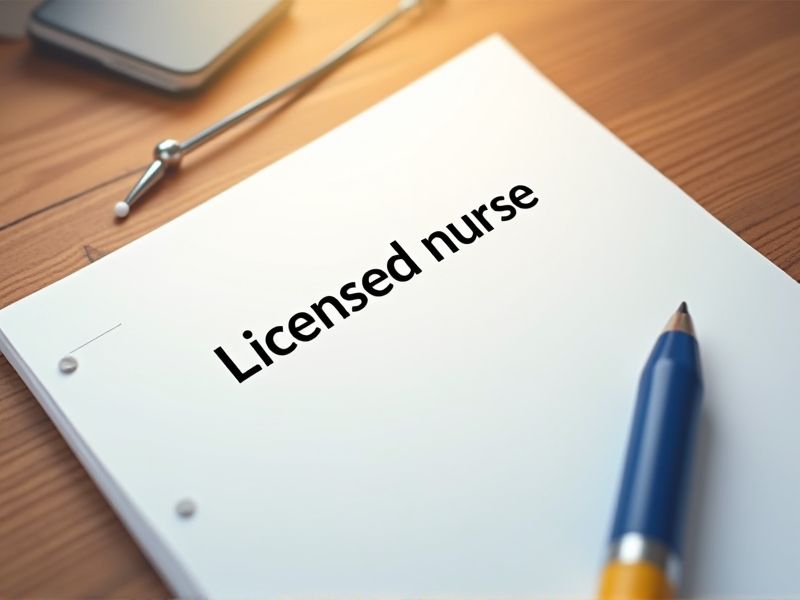
Licensed nurses require specific certifications to ensure they possess the necessary skills and knowledge for providing quality patient care. Certifications serve as a standardized measure of competence and enable nurses to specialize in certain areas, enhancing their career prospects. By obtaining these credentials, nurses not only adhere to legal and regulatory requirements but also boost patient confidence and trust. Here are some significant certifications that licensed nurses might consider attaining.
Basic Life Support (BLS)
Licensed nurses trained in Basic Life Support (BLS) can respond effectively during medical emergencies, ensuring immediate care before advanced medical support arrives. BLS training equips nurses with essential skills like CPR and the use of an automated external defibrillator (AED), which can increase a patient's chances of survival during cardiac arrest. Hospitals and healthcare facilities often require BLS certification to meet safety standards and improve patient outcomes. This training enhances a nurse's ability to work efficiently in high-pressure situations, promoting overall patient safety and care quality.
Advanced Cardiovascular Life Support (ACLS)
ACLS provides licensed nurses with the necessary skills to manage severe cardiac emergencies effectively, improving patient survival rates. Proficiency in ACLS protocols enhances a nurse's ability to rapidly assess and intervene in critical situations, such as cardiac arrest or arrhythmias. Possessing ACLS certification often aligns with healthcare facility requirements, ensuring that nurses can perform advanced emergency procedures. The systematic approach taught in ACLS fosters teamwork and communication among healthcare providers during life-threatening scenarios.
Pediatric Advanced Life Support (PALS)
Pediatric Advanced Life Support (PALS) equips licensed nurses with essential skills to effectively respond to critical emergencies in children, potentially improving patient outcomes. By understanding structured algorithms and interventions, nurses can deliver timely care to stabilize pediatric patients. PALS training fosters confidence and competence in handling respiratory distress and shock, which are prevalent pediatric emergencies. This specialized training enhances interdisciplinary communication, leading to cohesive and efficient emergency response teams.
Neonatal Resuscitation Program (NRP)
The Neonatal Resuscitation Program (NRP) enhances licensed nurses' ability to respond effectively to newborn distress, reducing neonatal mortality rates. NRP training equips nurses with critical skills for rapid assessment and intervention in delivery rooms. The program ensures standardized protocols are followed, improving teamwork and communication among medical professionals during emergencies. Proficiency in NRP enables nurses to make informed decisions, providing immediate and appropriate care to stabilize newborns.
Critical Care Registered Nurse (CCRN)
Hospitals require Critical Care Registered Nurses (CCRNs) to manage patients with life-threatening conditions due to their advanced skills in monitoring complex medical equipment and interpreting patient data. Licensed nurses benefit from CCRNs as they provide specialized guidance and contribute to multidisciplinary care processes. CCRNs enhance patient outcomes by implementing evidence-based practices, crucial for critical care settings. Their expertise aids in rapid decision-making, important in dynamic care environments.
Certified Medical-Surgical Registered Nurse (CMSRN)
The CMSRN certification validates a nurse's expertise in medical-surgical nursing, enhancing professional credibility. Certification often leads to improved patient outcomes due to evidence-based practices. Possessing a CMSRN can increase job opportunities and is sometimes required by employers seeking specialized staff. Certification often correlates with higher salaries, recognizing advanced knowledge and commitment to the nursing profession.
Certified Nurse Operating Room (CNOR)
The CNOR certification elevates a nurse's skills in the operating room, leading to improved patient safety and better surgical outcomes. Holding a CNOR credential often results in increased trust from both colleagues and patients due to the recognized expertise in perioperative care. Hospitals and surgical centers typically seek CNOR-certified nurses as they are more adept at handling complex surgical procedures. Obtaining CNOR status can significantly enhance a nurse's career opportunities, leading to potential promotions and increased income.
Certification in Infection Control (CIC)
Certification in Infection Control (CIC) enhances a nurse's ability to effectively implement and manage infection prevention protocols, reducing risks in healthcare settings. The certification ensures that nurses stay updated with the latest guidelines and practices, fostering a safer environment for patients and healthcare workers. Having a CIC can improve a nurse's career prospects by demonstrating specialized expertise, which can lead to leadership roles in infection prevention. The standardized knowledge and skills gained through CIC certification contribute to consistent and improved patient care outcomes.
Oncology Certified Nurse (OCN)
Oncology Certified Nurses possess specialized knowledge that enhances the care quality for cancer patients. This certification ensures that nurses are updated on the latest oncology treatment protocols and practices, thus improving patient outcomes. For licensed nurses, obtaining an OCN credential demonstrates proficiency in oncology nursing, which can lead to career advancement opportunities. A certified nurse in oncology acts as a vital resource within healthcare teams, contributing to more comprehensive treatment planning and patient education.
Certified Nurse Educator (CNE)
Certified Nurse Educators (CNEs) play a crucial role in bridging the gap between academic knowledge and practical skills, ensuring licensed nurses are equipped for diverse healthcare challenges. Their expertise enables the development of tailored educational programs, enhancing the competency and confidence of nurses in delivering patient care. CNEs help maintain high standards by implementing evidence-based teaching methods, which directly affects patient outcomes and safety. As healthcare evolves, the guidance of a CNE ensures that licensed nurses remain updated with the latest medical protocols and technologies.
Summary
By obtaining additional certifications, you as a licensed nurse can enhance your expertise in specialized areas of healthcare. This expertise often leads to better job opportunities and potential salary increases. Your enhanced qualifications can increase your competitiveness in the job market. Certified nurses often experience a greater sense of professional fulfillment and confidence in their roles.
